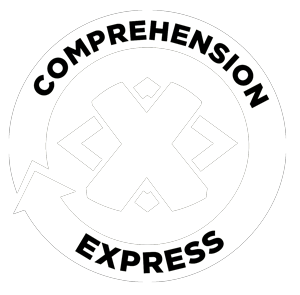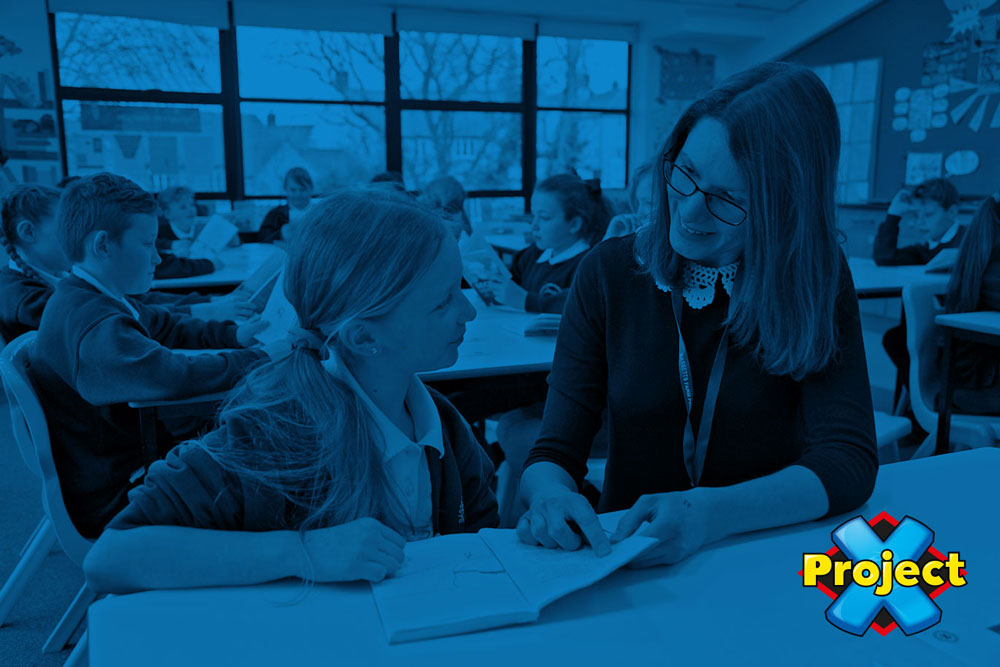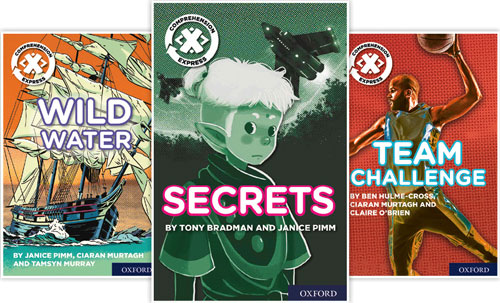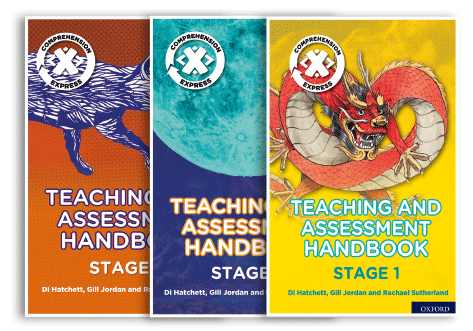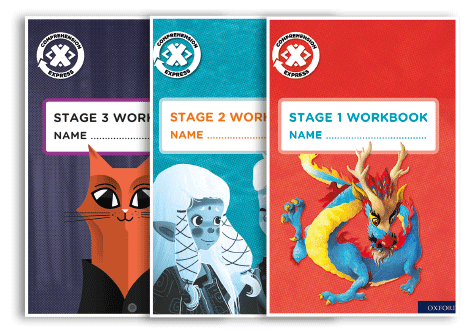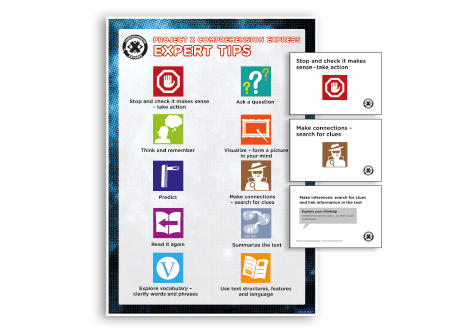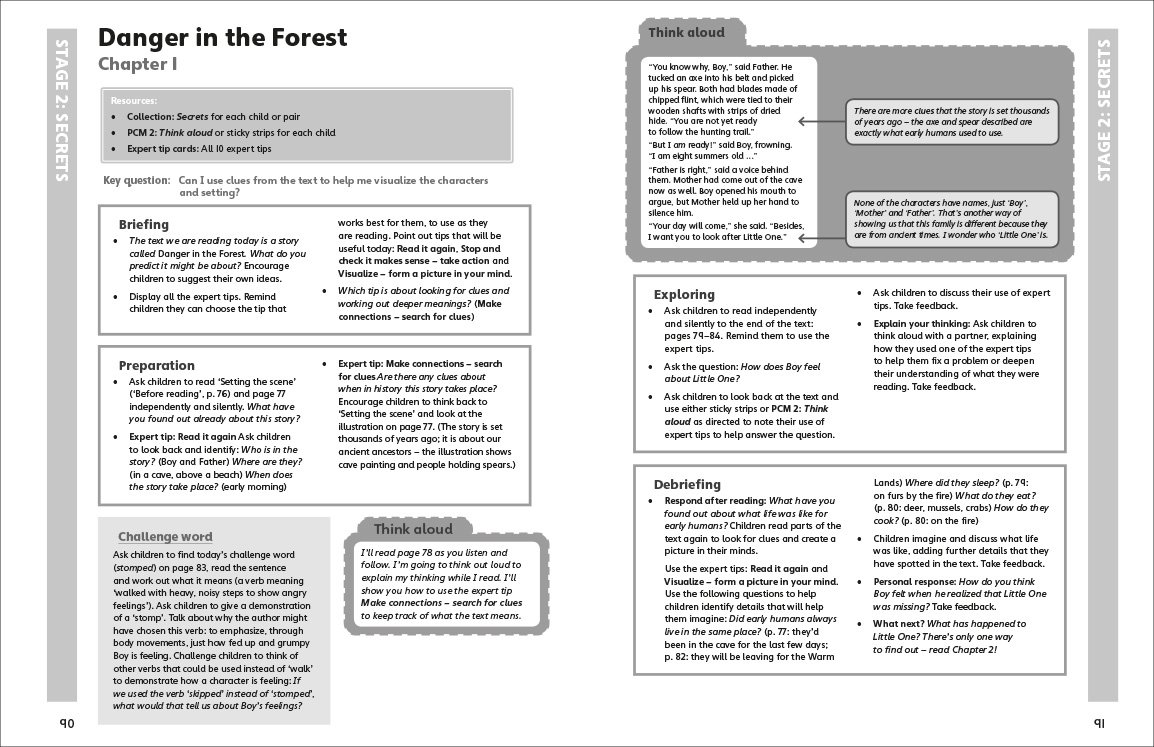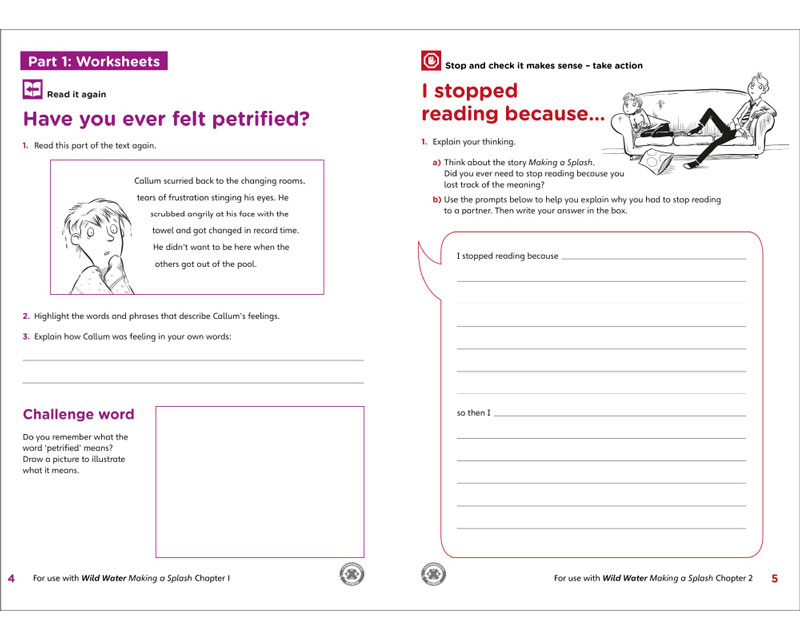Diagnostic assessment
Allows you to diagnose where students might have a block in their understanding – so you can effectively identify and close gaps.
Guidance for conducting a 1:1 conversation to further diagnose gaps is available in
the Teaching and Assessment Handbook with free support videos available on Oxford Owl so you can see these in action.
Possible next steps to close gaps are included to
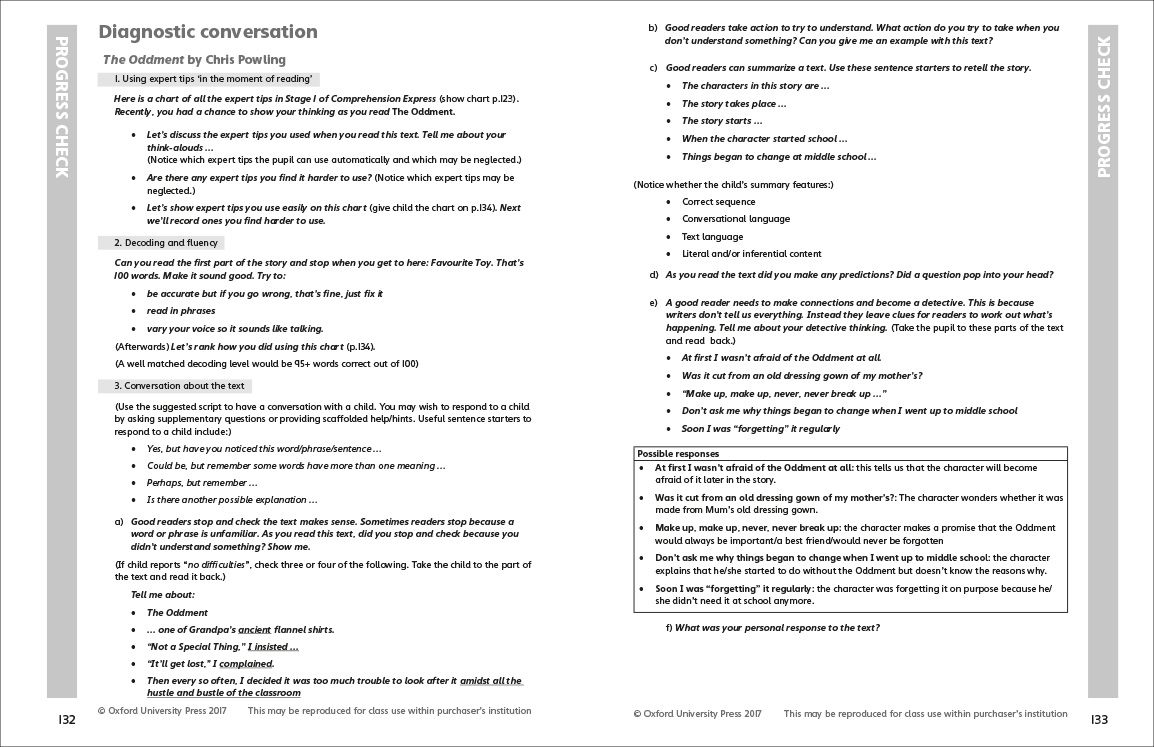
Online teaching support
Extracts used in teaching sessions are downloadable for use on the interactive whiteboard to save you time.
Implementation advice by comprehension experts and a video of a lesson in action.
Best practice videos of all activities covered in My Reading Test Practice book. These are great to watch with children.
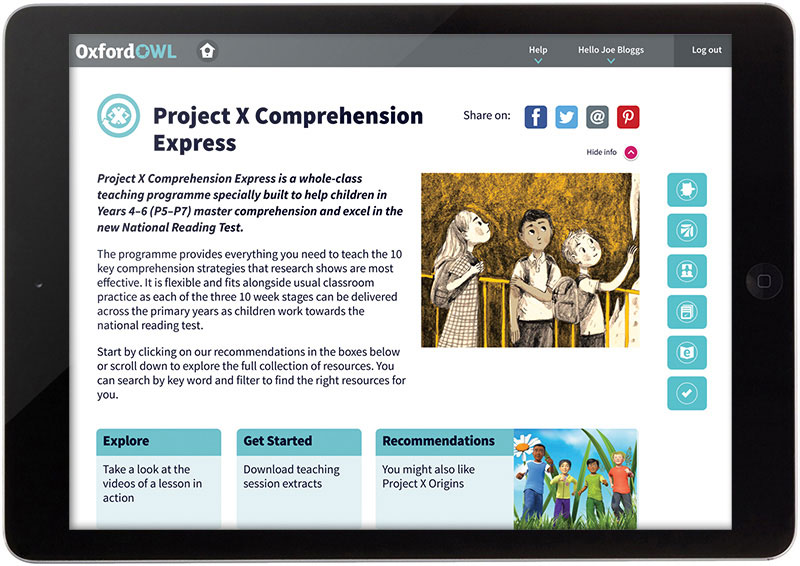
Complete this form to download the Project X Comprehension Express evaluation pack:
Uncover the features of Project X Comprehension Express with this evaluation pack that showcases sample pages from the series.
REQUEST EVALUATION PACK
